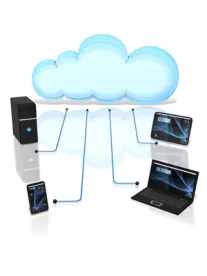Clayton Dodds, Director of Marketing for the Law Offices of Peter N. Brewer, a Silicon Valley real estate firm, is a strong advocate for using technology to advance how legal services are delivered. Per Dodds, “Most of our clients are tech professionals, who expect automation and look for streamlined processes and seamless communication. Like most progressive law firms, we use technology to leverage our workflow, but automation also creates a level of comfort with our clients who expect such things from their business partners.

Our managing partner even has a telepresence robot.” With these experiences under his belt, Clayton’s insight into the evaluation and implementation of various legal marketing technologies are a valuable resource. The National Law Review was fortunate enough to have a quick conversation with Clayton about his experiences, highlights are below.[i]
NLR: When choosing between various legal marketing automation services, how do you get to the core of the matter to determine if the technology offering is the best option for your firm?
Dodds: We will consider adopting a technology if we are fairly confident of a significant increase in efficiency which will justify the investment. In addition to the cost of the technology, we assess the amount of time and effort involved in implementing the new system.
NLR: As a busy marketing professional wearing lots of hats, how do you like to be approached by new technology vendors who are interested in pitching your firm?
Dodds: Let us know up front what problem your service is solving. Provide us relevant industry data, which helps us get our arms around the problem your technology is solving. Educate us about the scope and cost of the problem, so we can determine how it may impact our firm.
NLR: What’s the most helpful information a technology vendor can provide to help your firm determine if the product will be worth your firm’s investment?
Dodds: It’s a push and pull with vendors bringing to us products which will effectively solve a problem that hadn’t yet reached our radar. Other times we are scouring the marketplace to see if there is a technology product that will address an identified need of our firm. We need to evaluate the claims of various vendors to see if the product will be of significant benefit to our firm. One way to do this is with case studies which demonstrate clearly how a law firm implemented the technology to achieve specified results. It is especially helpful when vendors provide tools, such as score cards, for evaluating the technology’s ROI. We find product demos and free trials helpful, as well.
NLR: What are some of the factors involved in choosing which automation projects to jump into?
Dodds: One of the simplest thing to do is to look for low hanging fruit. For example, our firm wasn’t keeping detailed data on all incoming phone inquiries, only tracking booked appointments. We created standardized processes for documenting and tracking phone inquiries so we could identify trends and follow with potential prospects and incorporate marketing outreach to stay front of mind with potential clients. Additionally, we were able to see how potential clients were finding our firm and what triggered them to contact us.
Thank you Clayton for your time and insight!
[i] Clayton Dodds is a featured speaker at the upcoming 2016 Legal Marketing Technology Conference/ West to be held in San Francisco October 5-6, 2016. Clayton is speaking on Creating Efficiencies Through Marketing Automation: Principles & Practices.




 />i
/>i

